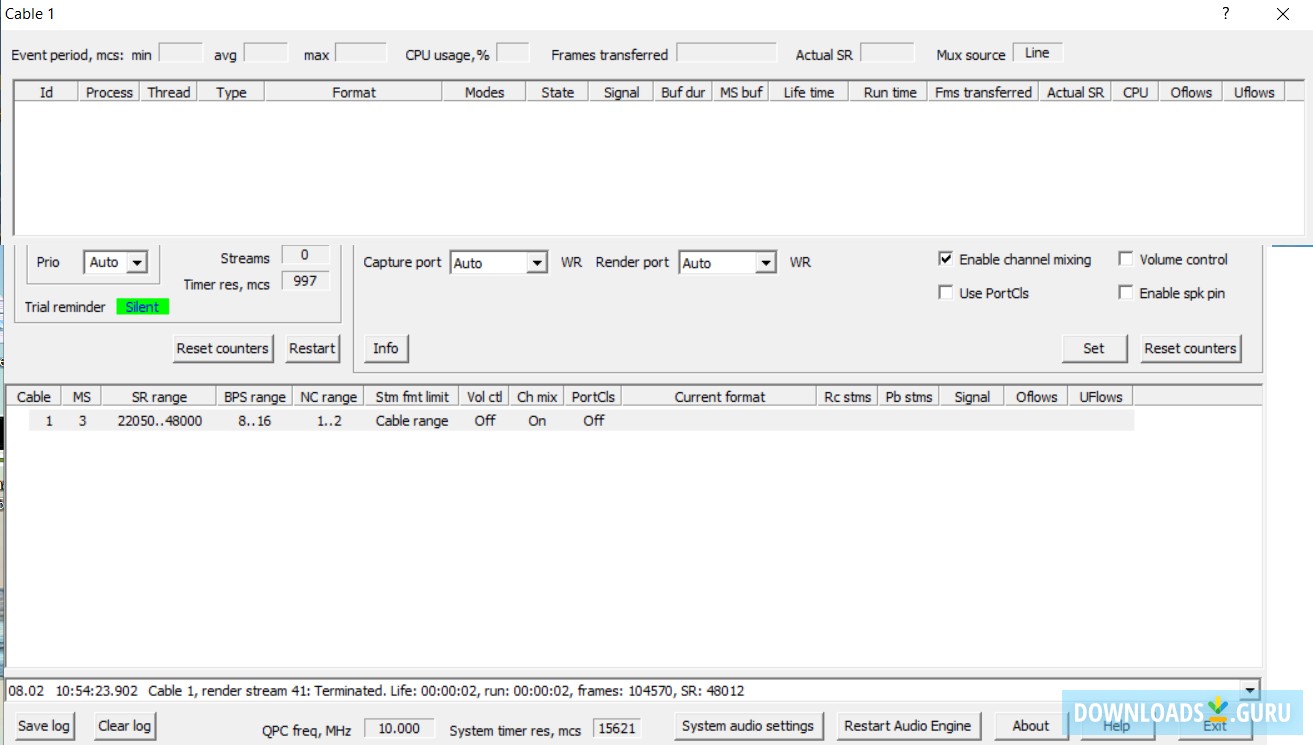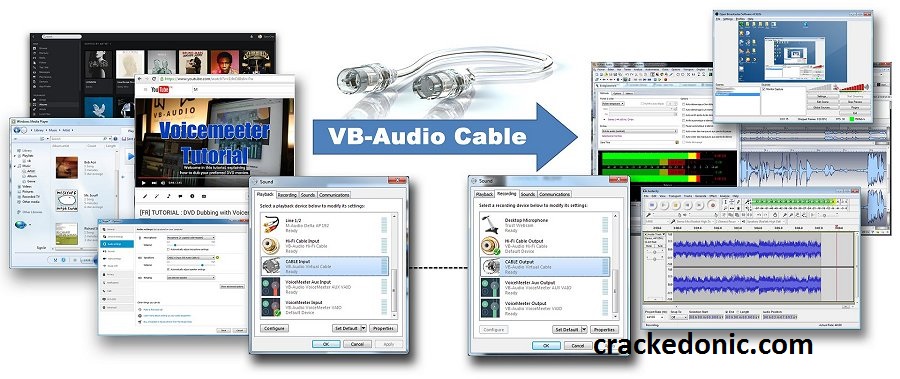

When you use Virtual Audio Cable, you can mix low sound latency, control volume, manage channel scattering, and mix signals between output ports. Compared to OBS, Voicemeeter, and ASIO4ALL, this program offers several customization options, versatile features, and quick transfers. You can use Virtual Audio Cable for audio file transfers among sound editors, virtual synthesizers, sequencers, recorders, and other programs. Using the input port, an application like a music player records the audio signals and sends the message to a destination software program, such as a sound analyzer or processor. The tool package introduces the concept of ‘virtual cables’, which denotes a set of virtual devices containing output and input ports.

While this program acts like a bridge, the applications are able to transfer audio streams among themselves. In simple terms, Virtual Audio Cable is a versatile audio driver specifically designed to connect multiple audio apps. For everything to work properly, the applications you use with Virtual Audio Cable should be able to support custom audio output devices.

It’s important to understand, though, that the audio software’s efficiency depends on other apps’ settings.


 0 kommentar(er)
0 kommentar(er)
